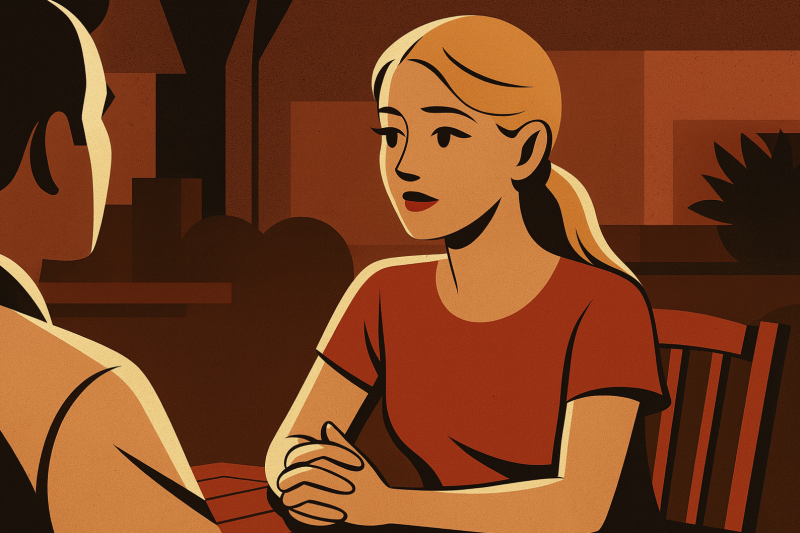
Feeling a little off as summer ends? You’re not alone. Here’s why late summer stirs up emotion—and how to move through it gently.
By Sergio Toledo
Editor-in-Chief, Heed to Heal
Introduction
There’s something bittersweet about late summer. The sun still shines, the days are long—but beneath the warmth, there’s a quiet ache. Maybe you feel restless. Maybe you feel sad for no clear reason. Maybe a familiar heaviness starts to creep in as August winds down.
This feeling is more common than most people realize. As summer transitions to fall, it’s not just the weather that shifts—it’s our energy, our memories, and our nervous systems. If you’ve been feeling off lately, it’s not in your head. You might be experiencing the end-of-summer blues—a subtle but very real emotional response to seasonal change.
Why the End of Summer Feels So Emotional
1. A Shift in Light and Rhythm
As days slowly grow shorter, your body begins to register the change even before your mind does. Sunlight affects mood, circadian rhythms, and energy levels. The subtle decrease in daylight can make you feel tired, unfocused, or emotionally low—even if everything else in life seems “fine.”
2. The Pressure of “Back-to-Busy”
Whether you’re a student, a parent, or just a human in a fast-paced world, late summer often signals the return of structure, deadlines, and routine. Fall brings a cultural push toward productivity—school starting, work ramping up, new goals being set. That transition can feel jarring, especially after slower, freer summer days.
3. Nostalgia and Grief for the Season
Summer is often associated with memories—childhood, vacations, warmth, connection. As it ends, you may feel grief for what didn’t happen: the fun you didn’t have, the plans that fell through, or the version of yourself you hoped summer would bring out. That sense of “wasted” time can create a quiet sadness, even if you can’t name it.
4. Social Comparison and Emotional Hangover
Social media during summer is often a highlight reel—sunny vacations, beach days, joyful gatherings. As the season winds down, it can leave you feeling like you missed out, didn’t do enough, or somehow lived it “wrong.” That emotional hangover is real—and unfairly heavy.
You’re Not Behind. You’re Just in Transition
This emotional shift doesn’t mean you’re failing or broken—it just means you’re sensitive to change. Transitions, even positive ones, require energy. It’s okay to move slowly. It’s okay to feel uncertain. You don’t need to race into fall with perfect goals or renewed motivation. You’re allowed to pause and feel whatever is coming up.
How to Care for Yourself during This Seasonal Shift
Here are a few gentle ways to ease the end-of-summer heaviness:
- Acknowledge the feeling. You don’t need a big reason to feel sad. Just naming the emotion gives it less power.
- Reflect, don’t regret. Instead of focusing on what didn’t happen, notice what did. What memories were made? What quiet moments mattered?
- Create soft structure. Gently prepare for fall with comforting routines—make lists, tidy spaces, light candles, cook nourishing meals.
- Stay connected. Reach out to friends. Talk about how you’re feeling. Chances are, they’re feeling it too.
- Spend time outside. Soak in the warmth while it’s still here. Let the sun touch your skin, even just for a moment. It helps more than we realize.
This Isn’t the End. It’s a Shift
Endings always stir something in us—even seasonal ones. But every ending carries the seed of a new beginning. Just as the leaves begin to turn, so do we. The sadness you feel now is a reflection of how deeply you feel, how fully you live. Let it move through you gently.
Summer doesn’t need to end in a rush. It can end in reflection.
References
- Rosenthal, N. E. (1998). Winter Blues: Seasonal Affective Disorder—What It Is and How to Overcome It. Guilford Press.
- Burgess, H. J., & Eastman, C. I. (2005). The dim light melatonin onset following fixed and free sleep schedules. Sleep, 28(5), 592–596.
- Preuß, M., & Ehring, T. (2021). Stress generation and maintenance in depression: An updated review. Clinical Psychology Review, 87, 102031.
- Kross, E., et al. (2013). Facebook use predicts declines in subjective well-being in young adults. PLOS ONE, 8(8), e69841.
Originally published by Heed to Heal, 07.28.2025, under the terms of a Creative Commons Attribution-NonCommercial-NoDerivatives 4.0 International license.





